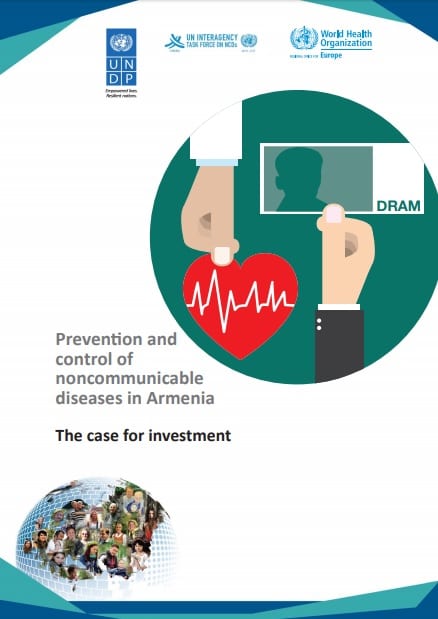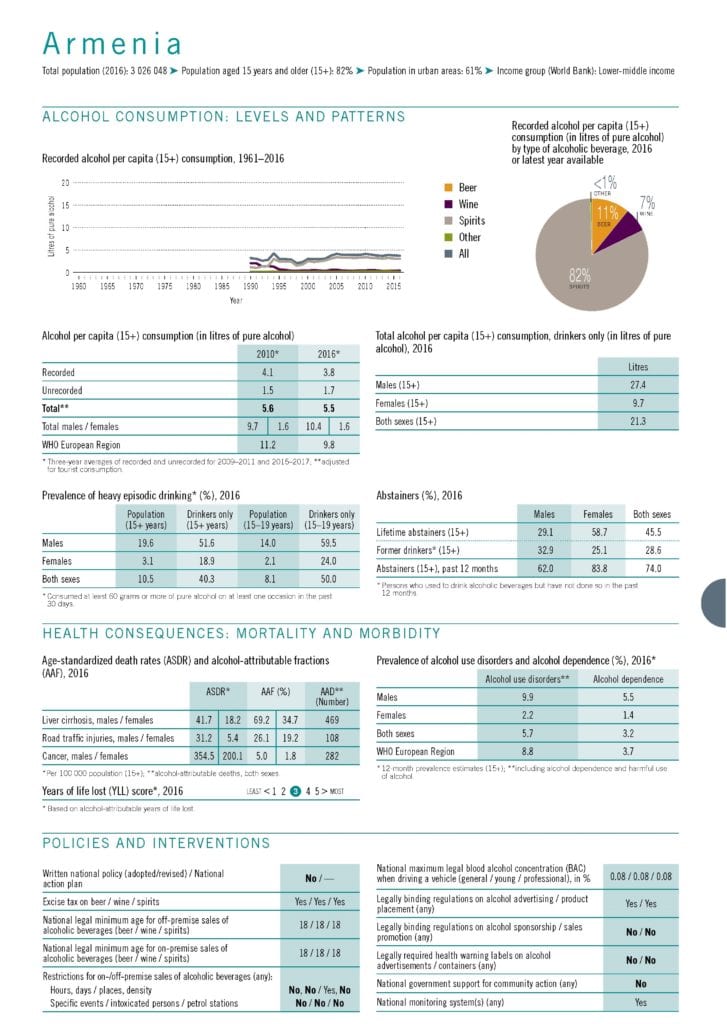WHO: NCDs Investment Case for Armenia
Noncommunicable diseases (NCDs) such as cancer, cardiovascular disease, diabetes and chronic respiratory diseases and their risk factors, including alcohol, are an increasing public health and development challenge in Armenia.
A new WHO report provides evidence through three analyses that NCDs reduce economic output and discusses potential options in response, outlining details of their relative returns on investment. The investments focus on best buys to reduce NCD risk factors such as alcohol and tobacco use. These investments are focused on achieving the 2030 agenda for SDGs.
According to the report:
- 203 billion dram is needed for investment on selected best buys intervention packages over 15 years
- The return on investment over 15 years is 215 billion dram
- The alcohol control package will save 5,000 lives and lead to 23 billion dram in productivity benefits
- For every 1 dram invested the alcohol control package will bring in a 4.14 dram return investment
Alcohol harm in Armenia
In Armenia binge use of alcohol is a growing concern with 40% users of alcohol engaging in this habit. For youth between 15 to 19 years its even higher at 50%. Armenian men suffer heavily from alcohol harm where 9.9% have some form of alcohol use disorder and 5.5% are suffering from alcohol dependence. Both of theses statistics are higher than the WHO European regional average.
In this view, Armenia stands to benefit from the NCD control packages recommended by the WHO. Furthermore, Armenia needs a comprehensive national alcohol control policy and tighten restrictions on sale and marketing regulation as recommended by the WHO best buys.
—


